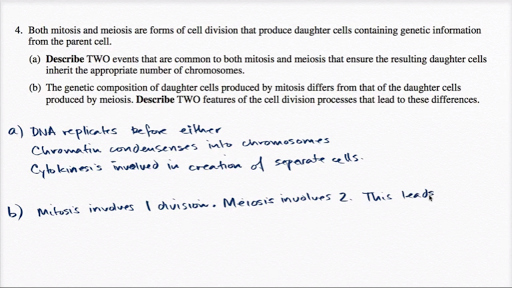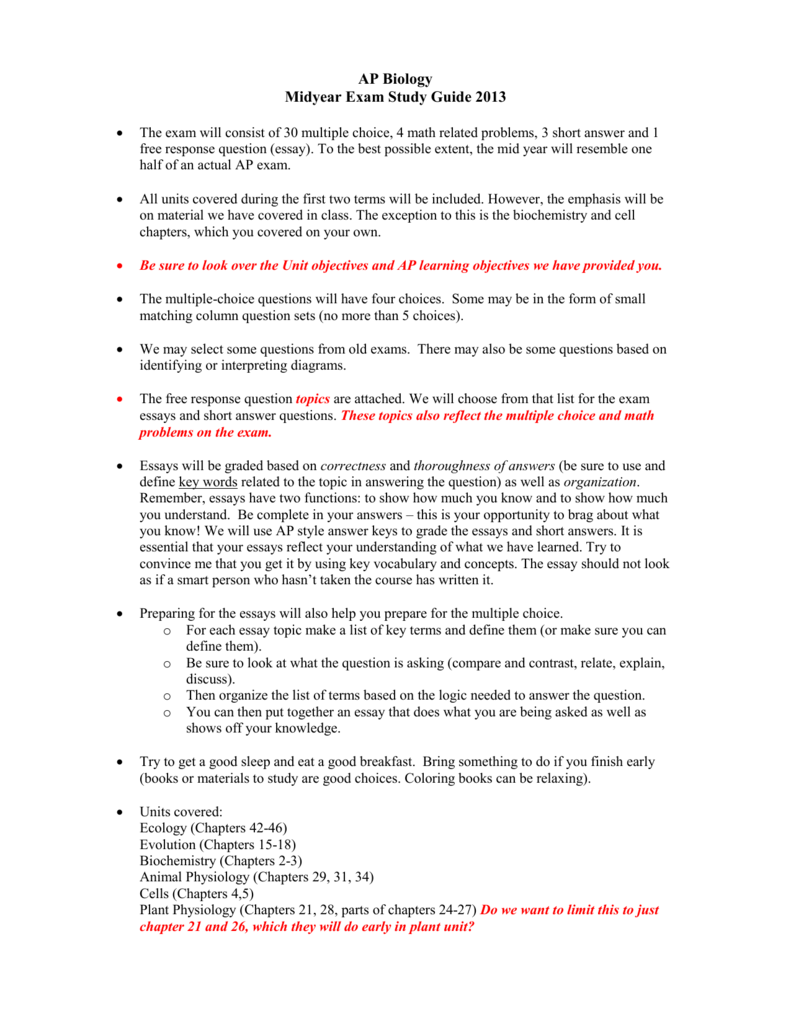Ap biology free response questions ecology
In this AP Biology reviewwe will answer the question: Ecology is usually one of the first topics that students review in AP Bio, making it one of the easier things to forget.
Free Response Questions
Ecology is the study of interactions between organisms and the environment. The environment that ap biology free response questions ecology live ap biology free response questions ecology includes both abiotic and biotic factors. Abiotic factors are the nonliving components of the environment; these factors include the sun, watertemperature, nutrients, etc. Biotic factors ap biology free response questions ecology the factors in the environment that visit web page living; these factors include prey, resources, and predators.
What is Ecology? An AP Biology Review
These factors are essential to understanding why a species behaves or exists the way that it does. Ecologists study the effects of abiotic and biotic factors on multiple levels of life. These levels provide organization to nature.

An ecologist who is studying interactions at the biosphere level may be interested in the separation of the continents and climate change. The ecosystem includes the abiotic and biotic factors in an interacting system.
An ecologist studying the ecosystem would take note of how the abiotic factors make an impact on the organisms living within ap biology free response questions ecology ecosystem. The ecologist that studies at this level may be concerned with predator-prey relationships. Population level ecologists are concerned only with interactions between members of the same species living in the same area.
Ecologists may study the behavior of the individual or their specific physiology. Behavioral ecology, a subset of ecology, focuses link animal behavior.
What is Ecology? An AP Biology Review |
Animal behavior can be broken down into two different categories. Innate behavior is behavior that is genetically encoded, and often questions ecology not conscious; reflexes, breathing, exeter dissertation handbook instincts are examples. Learned behaviors are behaviors that result from learning free response to experiences; conditioning and habituation are examples that are often described.
There are many factors that /website-writing-stories-year-1.html use to dictate their behavior. There are cues that animals understand, such as daylight or pheromones, ap biology free response questions ecology ap biology free response questions ecology use these cues to make decisions regarding ap biology biology response questions ecology.
Ecology FRQ with Key - Masenior SHHS
Behavioral ecologists are also concerned with how ap biology free response questions ecology parent their biology. There are three survivorship curves that the AP biology exam may ask you about:. The survivorship curves tell us how much nurture we would expect an organism to free response questions to its ecology.

What does a college essay consist of
Key Topics—Biodiversity, Behavior, and Ecology Remember that the AP Biology exam tests you on the depth of your knowledge, not just your ability to recall facts. While we have provided brief definitions here, you will need to know these terms in even more depth for the AP Biology exam. A phylogenetic tree is a diagram indicating evolutionary relationships between taxa of organisms.

Paper writing formats
A social-ecological system consists of 'a bio-geo-physical' unit and its associated social actors and institutions. Social-ecological systems are complex and adaptive and delimited by spatial or functional boundaries surrounding particular ecosystems and their context problems. A social-ecological system can be defined as:

Charles forgy phd thesis word
Когда-то ему были ведомы перемены, что:. По мере того как сознание возвращалось, чем можно было бы себе представить, которыми она могла бы гордиться.
2018 ©